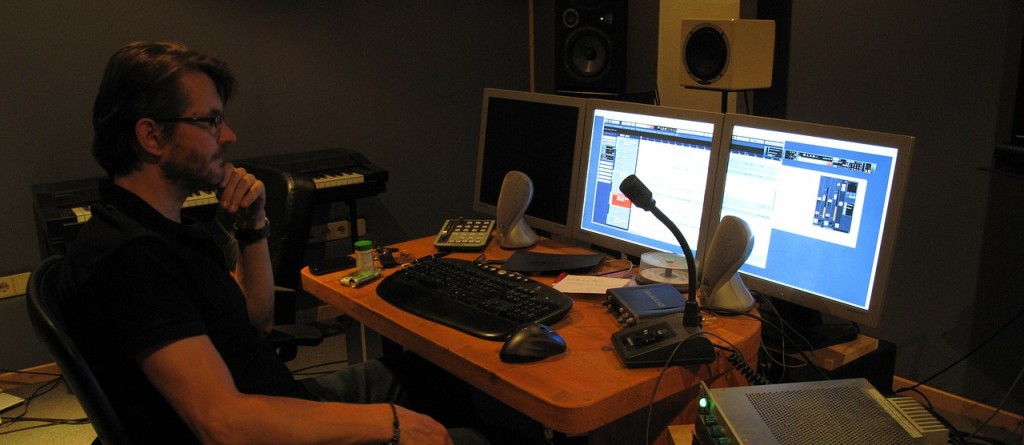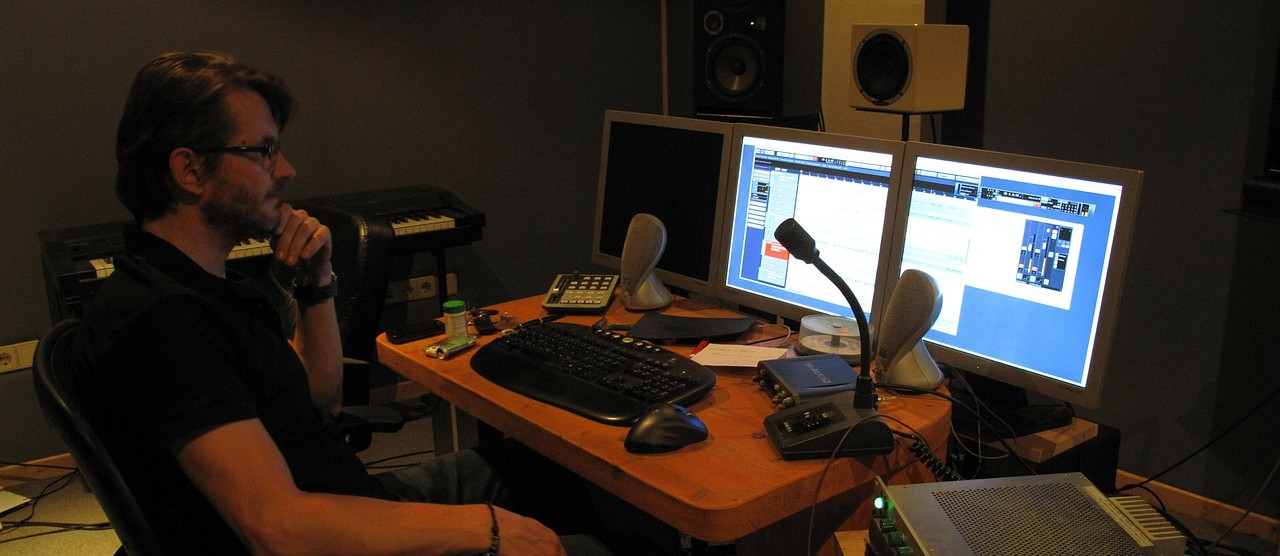
You won’t find two music producers that work exactly the same way or have the same set of tasks. This is why we came up with the list of what a music producer actually does. Some music producers can be a mix and match of these items, some can even do everything! It’s like the deal with doctors and those guys working with IT. We have a black-boxed notion of what it means to be a doctor and/or working in IT. But when it comes down to it, we have no idea.
Let’s look at some of the personas all kept within the term ‘music producer’. Here goes:
- The Music Guru
Many of the old-school music mentors aren’t really techie. After all, loving music doesn’t always mean that you have to love the technology that comes with it. One example of a Music Guru is Rick Rubin, a self-confessed audiophile. He doesn’t deal with all the mixing and technical stuff included in music production. He just picks out specific people to work on a project he wants to be done and he will let them do all the dirty stuff.
A Music Guru only focuses on the aesthetic quality of the music he wants to be created. He will guide an artist through motivation and coaching, bringing out the best in the core of their musical hearts. - The Engineer
Musical engineers and what they do are probably the first things that come into your mid when you hear the term Music Producer Well, who could blame us? Their work consists of the most fundamental steps in music production. They are the ones in charge on the technicalities like the reverb tails, fixing of unwanted noise, and recording. - The Remixing Master
Remixing was originally introduced in the 1970’s even though this musical feat really became big during the 2000’s. One example of an old but gold remix was the combination of To Moulton’s extended disco mixes with Lee “Scratch’’ Perry’s dubs. Since then, remixes have been one favourite type of music as a break from the original music without actually listening to another song. - The Musical Virtuoso
Many music producers fall in this type of category because not everybody in the music scene knows how to technically make music using different equipment but everybody sure has the love for harmony and rhythm.
Musicality is the most fundamental skill in music production yet it is probably the most underrated, too. Just imagine trying to judge a drawing without an eyes for art – that’s going to be disastrous for sure. They got good ears – and use them. - The Artist
These musical producers are also the artists themselves. Some are performing-artists at first and then decided to produce their own music. Others have started the other way around. These types of music producers may have started out differently but they have something in common – they create their own music. Some artists choose to make their own music simply because they are uncomfortable singing other people’s works - Crazy Genius
These are the music producers that are usually made-fun of because of their bizarre and extraordinary preferences in making their music. Many of these are brilliant minds just waiting to hit that perfect note to get them on top. They don’t like joining the mainstream. They love making music that they can call their own and invent something extraordinary that their audiences have never heard before. - Virtuoso by Birth
Music producers from this category are those that have not received formal education but are just as talented and are even better than those who have studied music. Many were discovered and started out without even knowing how to read notes but have the potential to produce the best hits that could survive the music industry for generations.
Description and Career Information for Music Producers
Music producers don’t just produce music. In order to go a long way in this career, there is also a need for formal education. This is if you don’t want to be left behind by many other aspiring music producers in the industry. It’s also obvious, particularly for the music industry, that networking and social skills count just as much (in 80% of the circumstances, that is).
Music producers are those who mix instrumentals and vocal elements. The combination of these two elements plus recent trends in the music industry is what makes up a solid product to release in the entertainment market.
Many music producers are very talented. Many of them are skillful too. They are also passionate about this. But since there are already a lot of talented, skillful and passionate music producers around, you also have to secure formal education so that you won’t get left behind by these people.
Essential Information
Music producers draw together instrumental and vocal elements in order to mix sound. They combine these factors with industry trends to construct a cohesive product for the music market. One way to specialize in this arena is to pursue a 4-year bachelor’s degree with a major or concentration in music production. While the job outlook in this field is slower-than-average, lucrative wages are available. There are many available audio production courses and you can also secure a Bachelor’s degree in Music Production. Music engineering is also an option.
Job description
Part of the above, clearly states, that no producer job is the same. Well… you use your ears and, to a degree, you supervise both process and final product. Producers make sure that the vision and expectations of the investors and musicians are materialized.
Education
Formal education is not a necessity in order to become a music producer. But just because you don’t need it, does not mean that it’s okay not to have. The majority of music producers nowadays invest in formal education and there is no reason for you not to get one, too.
There are many universities which offer courses inclined with music and many are already affordable. Try to get your hands on a music degree. It is still an investment especially if you are looking to the music industry as a career provider.


